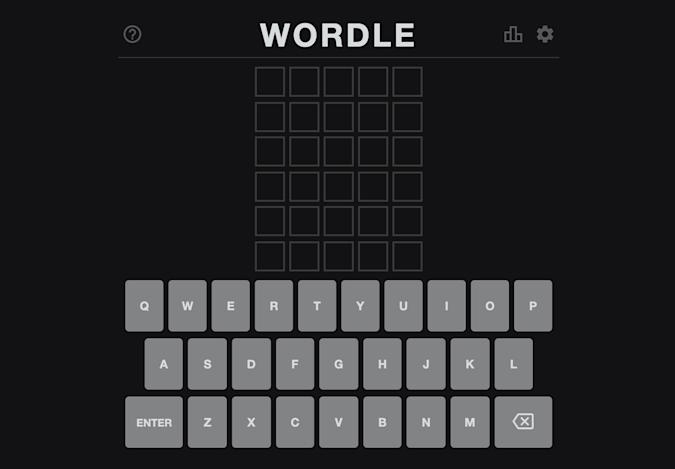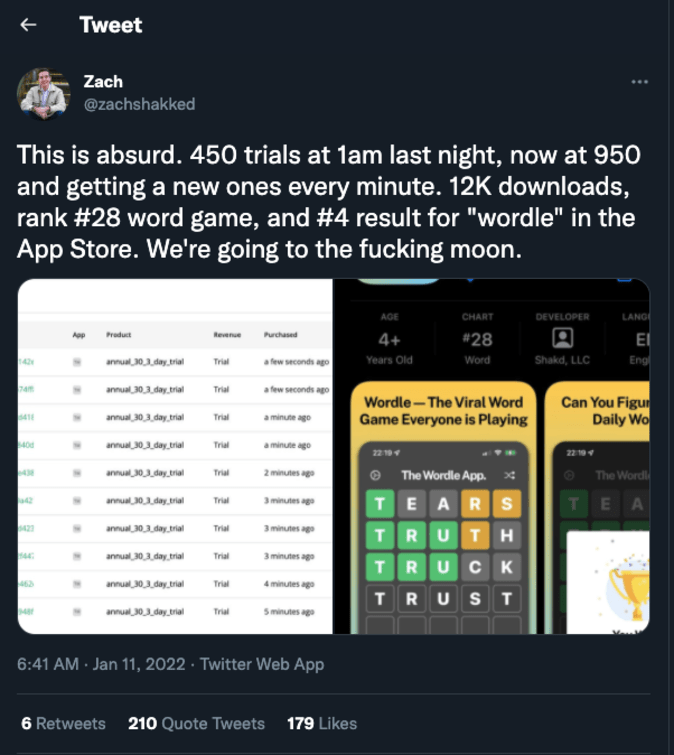‘Wordle’ clones are taking over the App Store
Proving, once again, that no viral game goes uncopied.


If you’ve spent any time on Twitter in the last week, chances are you’ve seen the grids of emoji boxes taking over your feed. That’s thanks to Wordle, a new puzzle game that’s become somewhat of an obsession for many since The New York Times wrote about it just over a week ago.
Like other viral games, Wordle is deceptively simple: you have six chances to guess a new five-letter word. And that’s… pretty much it. There’s just one puzzle a day, and it’s free to play with no ads . Its creator, a software developer named Josh Wardle, is apparently “overwhelmed” by his game’s popularity. But the fact that the game doesn’t have an app has allowed developers to create their own knockoff version of the game.
One particularly egregious example comes from developer Zach Shakked who created an app called “Wordle – The App.” At first glance, the app, which is subtitled “Word Game Everyone’s Playing!” could easily be mistaken for the original. The word grid looks almost the same, and it even uses the same color scheme. But Shakked’s version also asks players to sign up for a “pro” subscription that costs $29.99 after a three-day “free trial.”
But between naming the app “Wordle” and running search ads against the term in the App Store, Shakked seems to have succeeded in profiting off the popularity of the game originally created by Wardle. “This is absurd. 450 trials at 1am last night, now at 950 and getting a new ones every minute,” he wrote in a tweet that has since been made private. “12K downloads, rank #28 word game, and #4 result for “Wordle” in the App Store. We’re going to the fucking moon.”

Shakked and Wardle didn’t respond to questions from Engadget. But Shakked isn’t the only developer trying to cash in on the popularity of Wordle. His app is one of at least six Wordle clones launched in the App Store in the eight days since the original New York Times article about Wordle. Another, called “What Word – Wordle” which charges a $0.99 in-app purchase to remove ads, claims to be the “No. 1 Word game” in its App Store screenshots. (It is actually ranked No. 7 in word games, according to its App Store listing.)
Scammy knockoff apps capitalizing on the popularity of a viral game is nothing new, of course. Game developers have been complaining about the practice for years. Apple didn’t immediately respond to questions about Wordle clones in its store. But, thanks to emails released during the Epic v. Apple trial, we do know that copycat apps have long been a source of frustration for Apple executives as well. “Is no one reviewing these apps? Is no one minding the store?” Phil Schiller wrote in a 2012 email. Three years later, he complained that “I can’t believe we still don’t” have automated tools to find scam apps.
Update 1/11 7:52pm ET: App Store listings for the Wordle clones are no longer accessible, and the apps appear to have been removed from the store. We’ve reached out to Apple for more information.
Update 1/11 10:05pm ET: Apple confirmed to Engadget that it had removed the games from its App Store.
(49)